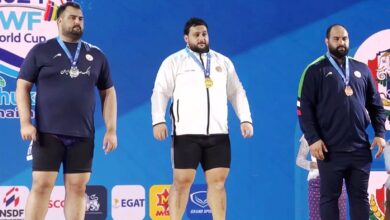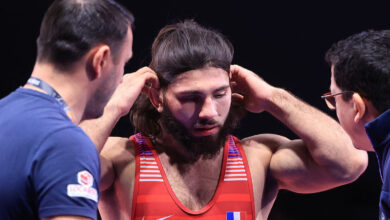EEU members may be exempt from Russia’s bill on legionnaires in sports

The Belarusian Football Union (BFU) speaks for the idea of excluding member states of the Eurasian Economic Union (EEU) from Russia’s mooted bill on the limit of foreign athletes participating in Russian team sports, Sergey Safaryan, a deputy chairman of the BFU, said on Wednesday, TASS reports.
The Eurasian Economic Union (EEU) is a new integration association, which started functioning from January 1, 2015 instead of the Eurasian Economic Community (EurAsEC), which officially ceased to exist on October 10, 2014. The organization includes Russia, Belarus, Kazakhstan and Armenia with Kyrgyzstan expected joining it in May this year.
“We have been long speaking for this initiative [not to be subjected to the status of legionnaires] and believe… that the market should be common,” Safaryan said. “This is all where it heads to. We are ready to give support to such initiative.”
Vyacheslav Koloskov, the honorary president of the Russian Football Union (RFU), told TASS that in order to implement such initiative two steps must be taken. Firstly, there must be a political decision made on the free movement of workforce on the territory of the EEU member states and, secondly, there must be a proper agreement reached at the level of national football unions.
“FIFA is not dealing with such issue,” Koloskov, who used to hold the post of FIFA vice president, said. “Everything is regulated by national federations. There are no such notions for FIFA as foreigners or legionnaires.”
Russian Sports Minister Vitaly Mutko announced in August that a bill regulating the number of foreign players competing in Russian sports clubs had been drafted and was ready to be submitted for voting with the Russian lawmakers.
The bill envisages granting the Russian Sports Ministry the right of establishing and coordinating the limit of foreign athletes allowed to compete in Russia, who are also referred to as “legionnaires.” Each sport would have its own limit for attracting legionnaires, according to the bill.
The draft law is also likely to stipulate obligatory criteria for foreign players, including their athletic qualification, age, period of permanent stay in Russia as well as athlete’s period of training in Russia and results achieved while competing for Russian sports clubs.
Last month the Executive Committee of the Russian Football Union (RFU) approved a limit for foreign players allowed to be submitted by football clubs before each playing season at a formula of 10 foreigners plus 15 Russian players (10+15).








